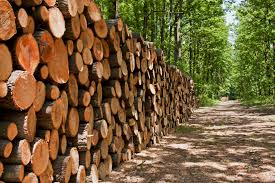
China’s growing middle class represents one of the most dynamic and promising new sources of demand for Canada’s high-quality goods and services. We know that when we expand and diversify our export markets, it creates good, well-paying jobs and opportunities for middle-class Canadians.
Chinese wood products importers in Shanghai, one of the most populous cities in the world, told a Canadian trade mission led by the Honourable François-Philippe Champagne, Minister of International Trade, that they were eager for greater government-to-government cooperation to facilitate their growing demand for Canada’s versatile and eco-friendly softwood lumber.
The six-day mission, which concluded yesterday, advanced an array of trade, educational, and investment opportunities with forestry front and centre. The delegation included industry representatives from the Quebec, New Brunswick, and British Columbia lumber sector, as well as industry group Canada Wood, Export Development Canada and the Canadian Commercial Corporation.
Canada is in the early stages of exploratory discussions with China to determine whether there is sufficient interest and economic benefits to pursue formal negotiations for a free-trade agreement. The Government of Canada is also undergoing consultations to ask Canadians for input in defining Canada’s interests in a possible free-trade agreement with China.
In Chongqing, also among the world’s 20 most populous cities, the Minister participated in a softwood lumber workshop, engaging with southwest China builders, developers and architects about ways to increase the presence of wood-frame housing, and grow Canadian wood exports to the region. He also met with municipal leaders and stakeholders driving education and innovation partnerships between Canada and China’s southwestern region, including with prominent francophiles, such as the Dean of Sichuan International Studies University and exchange students bound for HEC Montréal.
During his stop in Zhengzhou, Minister Champagne attended the 2017 China Green Companies Summit and reiterated Canada and China’s shared commitment to double trade by 2025. He met with Jack Ma, Executive Chairman of Alibaba Group, which launched the “Canada Pavilion” featuring Canadian products and services on the world’s largest e-commerce shopping site last September after Mr. Ma met Prime Minister Justin Trudeau. Mr. Ma is also Chairman of the China Entrepreneur Club (CEC), and he and Minister Champagne discussed connectivity and the future of small and medium businesses. He also met with other members of the influential CEC, including substantial buyers of wood products.
The Minister finished his trip in Beijing, where he met with his ministerial counterpart Zhong Shan, Minister of Commerce to discuss expanding the Canada-China bilateral trade and investment relationship.
Minister Champagne also met with Chen Zhenggao, Minister of Housing and Urban-Rural Development, on renewing the Canada-China Memorandum of Understanding on the development of eco-cities, which promotes Canadian wood-frame construction technology. The governments of Canada and China have been working together on an eco-district project in Tianjin Binhai, which incorporates Canadian-wood construction, green-building materials and energy efficient technologies, to build over 100 beautiful Canadian-style wood villas.
Additionally, in Beijing, Minister Champagne met with the State Forestry Administration and held roundtables with business representatives, including importers of Canadian wood, tourism operators and women entrepreneurs. He also attended the CNOOC-Nexen Business Mission—an inspiring example of leadership by the largest investor in Canada which brings Canadian SMEs in the oil and gas sector to China, helping to connect them to Chinese supply chains and highlighting Canada’s expertise in innovative fields such as energy efficiency, renewable energy, bioenergy, carbon capture and storage, alternative transportation fuels, and responsible resource extraction.
While in Beijing, Minister Champagne, with Finance Minister Bill Morneau, co-chaired the launch of the Canada-China Economic and Financial Strategic Dialogue, a key commitment made during the reciprocal official visits of the two countries’ leaders in fall 2016. The Dialogue covers a wide range of economic and financial issues, helping both countries unlock opportunities for the middle class through job creation and market diversification.
Quotes
“We actively explored new opportunities for Canada’s high-quality products, notably softwood, where we found eagerness in China to explore the sustainable, eco-friendly and safe softwood products where our industry excels. Expanding Canada’s economic relationship with China will benefit the middle class and our innovative export sector.”
– François-Philippe Champagne, Minister of International Trade
“As China continues to grow and expand its economy, the Government of Canada believes that working together on priorities like trade and investment, and sharing important lessons in areas like the financial sector, can help bring stronger growth to citizens in both our countries. A strong economic relationship with China means more opportunities for middle class Canadians to succeed and prosper, and will help China meet its growing needs in sectors such as infrastructure, renewable energy, natural resources, agriculture and aerospace.”
– Bill Morneau, Minister of Finance
Quick Facts
- Forest product exports contribute substantially to the Canadian economy. By value, Canada is the world’s fourth-largest forest product exporter, and the world’s leading exporter of softwood lumber and newsprint.
- Canada’s bilateral trade with China reached a value of $85 billion in 2016, and Canada and China’s two-way foreign direct investment reached $34.7 billion at the end of 2016.
- Canada’s merchandise exports to China in 2016 were worth $21 billion, up 4 percent over 2015, with the top exports being forest products, agricultural products, ores and motor vehicles.



Leave a Reply